The truly free man is the one who can turn down an invitation to dinner without giving an excuse
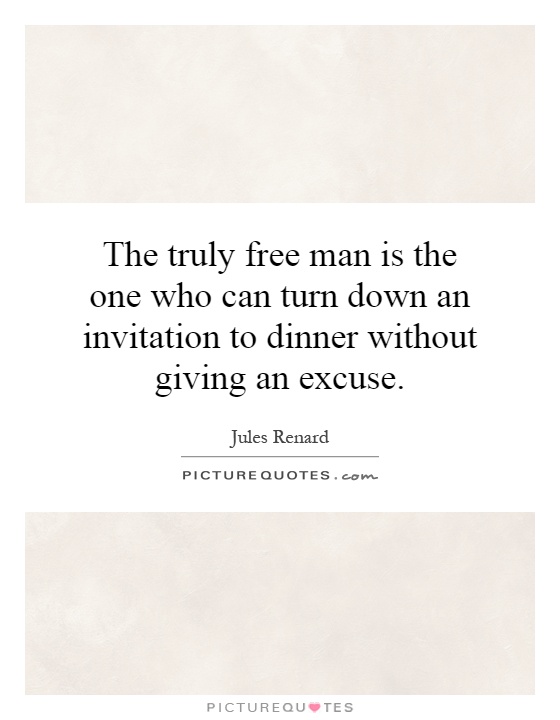
The truly free man is the one who can turn down an invitation to dinner without giving an excuse
Jules Renard, a French author known for his wit and wisdom, once said, "The truly free man is the one who can turn down an invitation to dinner without giving an excuse." This statement speaks volumes about the concept of freedom and independence in social interactions. In a society where politeness and social norms often dictate our actions, the ability to decline an invitation without feeling the need to justify oneself is a rare and admirable trait.To truly understand the significance of Renard's words, it is important to delve into the underlying meaning behind them. In essence, Renard is suggesting that true freedom lies in the ability to make choices without being bound by external expectations or obligations. By turning down an invitation without giving an excuse, one demonstrates a sense of self-assurance and autonomy that is not easily swayed by the opinions or judgments of others.
In today's world, where social media and constant connectivity have blurred the lines between personal and public life, the pressure to constantly be available and accommodating can be overwhelming. The fear of missing out or offending others often leads us to say yes to things we don't want to do, simply to avoid confrontation or discomfort. However, Renard's words remind us that true freedom comes from being able to prioritize our own needs and desires, even if it means disappointing or inconveniencing others.
Furthermore, the ability to decline an invitation without giving an excuse also speaks to the importance of setting boundaries and asserting oneself in social situations. By confidently saying no, one asserts their own agency and autonomy, rather than being swayed by external pressures or expectations. This kind of self-assurance is a hallmark of true freedom, as it allows individuals to live authentically and in alignment with their own values and priorities.

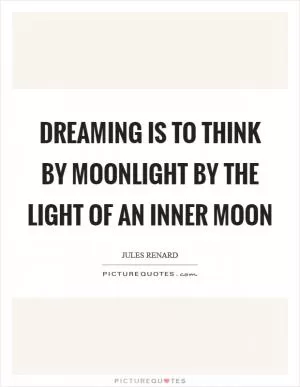



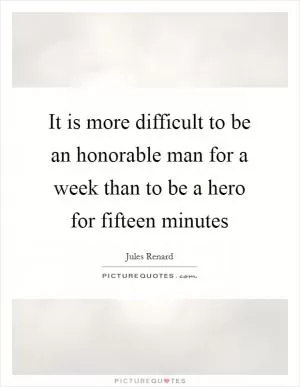


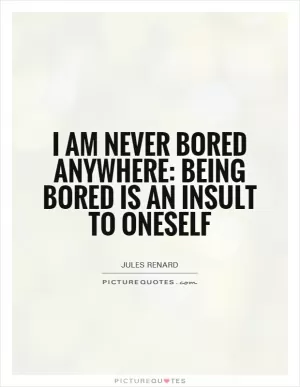
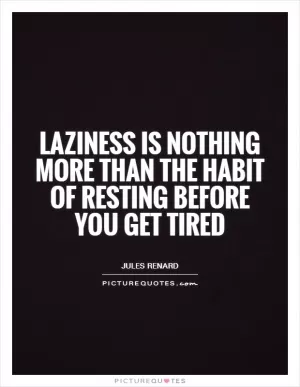


 Friendship Quotes
Friendship Quotes Love Quotes
Love Quotes Life Quotes
Life Quotes Funny Quotes
Funny Quotes Motivational Quotes
Motivational Quotes Inspirational Quotes
Inspirational Quotes